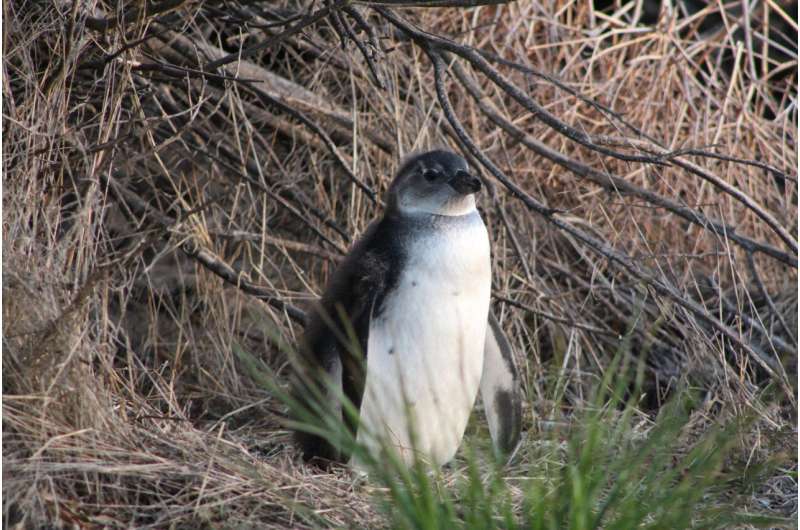A recent study led by the University of St Andrews reveals that critically endangered African penguins are increasingly competing with commercial fishing vessels for food. This competition intensifies during periods of low fish abundance, further threatening a species already facing a significant decline. Published in the Journal of Applied Ecology, the research introduces a new metric called “overlap intensity,” which assesses the impact of this competition on penguin populations.
The African penguin population has decreased by nearly 80% over the past three decades, largely due to competition with local fisheries targeting sardines and anchovies, crucial food sources for these birds. The study found that during years of low fish availability, such as 2016, approximately 20% of penguins were foraging in areas overlapping with active fishing vessels. In contrast, when fish stocks were healthier, this overlap dropped to just 4%.
New Insights into Penguin Foraging Behavior
The research team, which included scientists from the University of Exeter, the South African Department of Forestry, Fisheries and the Environment, and BirdLife South Africa, utilized tracking data from penguins on Robben Island and Dassen Island. Dr. Jacqueline Glencross, the lead author from the Scottish Oceans Institute at the University of St Andrews, emphasized the need to assess not just where penguins and fisheries overlap, but also the number of penguins affected by this interaction.
The findings indicate that competition for food peaks during critical periods, such as chick-rearing seasons, when adult penguins must forage efficiently to feed their young. This increased competition could lead to further declines in penguin populations if not addressed.
Implications for Conservation Efforts
The study’s quantification of overlap intensity provides a valuable tool for evaluating ecological risks associated with fishing practices. By understanding how many penguins are affected by fishing activities, policymakers can make informed decisions regarding ecosystem-based fishery management.
The research also supports the recent establishment of biologically meaningful no-fishing zones around penguin breeding colonies. Earlier this year, a landmark court case in South Africa highlighted the need for such closures. In response, the South African government reinstated these no-fishing zones around Robben Island, a key penguin colony. Dr. Glencross noted, “This research highlights why those closures are necessary. Previously unprotected areas with high overlap intensity are where the penguins were most at risk.”
As conservation efforts continue to evolve, the findings from this study underscore the urgent need to address the challenges faced by African penguins. The ongoing competition with fishing vessels, especially during low fish abundance years, remains a pressing threat to their survival.
The complete study can be found in the Journal of Applied Ecology under the title “Spatial overlap alone downplays the level of interaction between a central place forager and the local fishery.”







